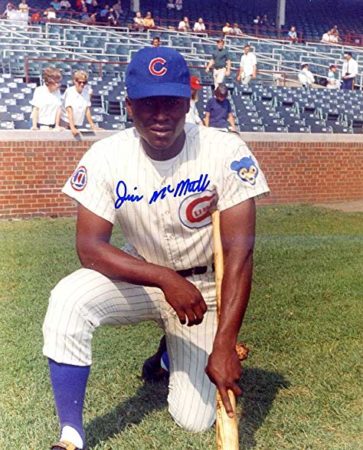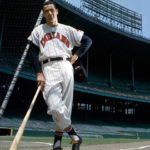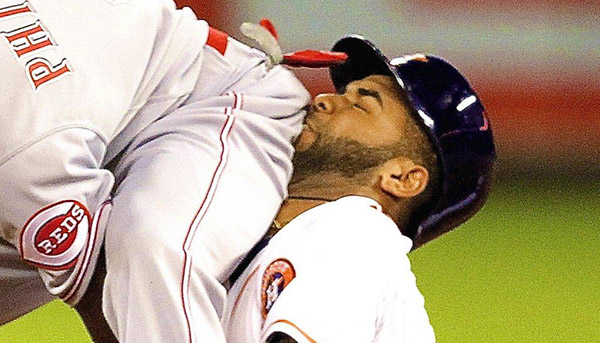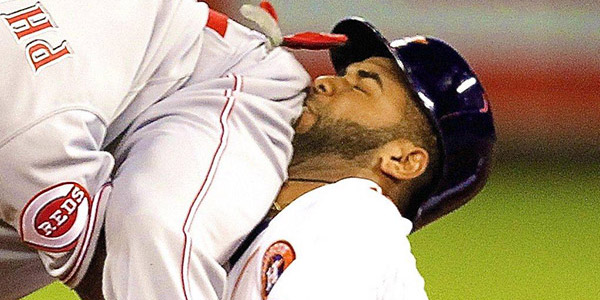Legend and Mystery of Jimmy McMath
 The year 1968 is often considered a pivotal time this country’s history. With assassinations, protests and violence in the street, it doesn’t seem like a very comfortable time to have witnessed. And I only got to see half of it, as I was born in the summer of that year. So, yes, a big round-number birthday happened for me earlier this year. As always, I’m just happy to be on this crazy blue marble spinning in the solar system.
The year 1968 is often considered a pivotal time this country’s history. With assassinations, protests and violence in the street, it doesn’t seem like a very comfortable time to have witnessed. And I only got to see half of it, as I was born in the summer of that year. So, yes, a big round-number birthday happened for me earlier this year. As always, I’m just happy to be on this crazy blue marble spinning in the solar system.
The roundness of the number 50 gives us an opportunity to reflect on things that otherwise aren’t possible. And I’m going to take that opportunity to look at the meteoric rise of what must be the coolest baseball name I’ve ever heard: Jimmy McMath.
Jimmy is the kind of a name that conjures up a certain kind of image. I immediately go to Jimmy Page and Jimi Hendrix and Jimmy Buffett. With a trio like that, there’s not much more to say. Van Halen also recorded a song called “Top Jimmy” which calls its subject, who fronted an L.A. band called Top Jimmy and the Rhythm Pigs, “the baddest cat alive.” That says it all for me.
The McMath part of the name intrigues me, too. To this day, I am afraid of math itself, so actually putting it into someone’s name gives it an almost mythical quality. If you think math is confusing and frustrating, just imagine what McMath is like.
So, putting the two names together gives off a weird vibe, at least for me. But when applied to a real-life ballplayer who briefly played for what would later become my team—the Chicago Cubs—it becomes too much to ignore. And this being the 50th anniversary of his ascent to the majors, I will never again get a chance to tell his story. So, here it is …
Jimmy McMath began the 1968 baseball season with the Cubs’ single-A affiliate in Quincy, Illinois. He made his professional debut the previous year, as a 17 year-old from Tuscaloosa, Alabama. Seventeen seems like an early age to be playing pro ball, and nothing from his two stops in the 1967 season portended anything outstanding. But McMath made the jump to the double-A club in San Antonio in 1968, and from there, he was promoted to the major leagues as a September call-up, just a few weeks after his 19th birthday. By way of comparison, Juan Soto of the Washington Nationals is an active 19 year-old in MLB at this time, but his debut in May came when he was closer to his 20th birthday.
The 1969 Cubs occupy a special place in the hearts of many fans, but the 1968 Cubs aren’t so exalted. In June of that year—as I was still adjusting to life outside the womb—the team went a mind-numbing 48 consecutive innings without scoring a run, a record that still stands today. Although they finished the season with a winning record, they were no threat to the pennant-winning St. Louis Cardinals in September.
McMath’s debut came on September 7, when he started the game and batted fifth. Considering he batted behind future Hall of Famers Billy Williams and Ernie Banks, and in front of another future Hall of Famer in Ron Santo, it almost seemed too good to be true. With Fergie Jenkins on the mound that day, McMath played with four Hall of Famers at Wrigley Field, not even a month past his 19th birthday. Oh, and he even singled and drove in a run in the fifth inning.
McMath made two more starts for the Cubs on that homestand, during which time he gained more major league experience than most of us will ever know. So, what if he only appeared in three more games—all of them as a pinch-hitter—the rest of that season? Who among us can say that we ever pinch-hit, even one time, at the highest level of the game? I sure can’t say that.
But forward progress is not always guaranteed in life, nor in the major leagues. Jimmy McMath played for the Cubs’ triple-A team at Tacoma during the 1969 and 1970 seasons, but by 1971 he was back at single-A Quincy, at the ripe old age of 21. At an age when most of us are still trying to figure out what we’re going to do with our lives, McMath’s moment in the baseball spotlight was already behind him.
I have no idea how Jimmy McMath spent the rest of his days on earth, from the end of his professional baseball career until his passing in 2010 at the age of 60. I hope those who knew him in later years heard the stories of how he hit behind Ernie Banks, and got paid for standing in the sunshine on the beautiful green grass of Wrigley Field. And 50 years later, I’m pleased to be possibly the only one who will ever point this out. After all, what is baseball without its stories of players and teams gone by?


























